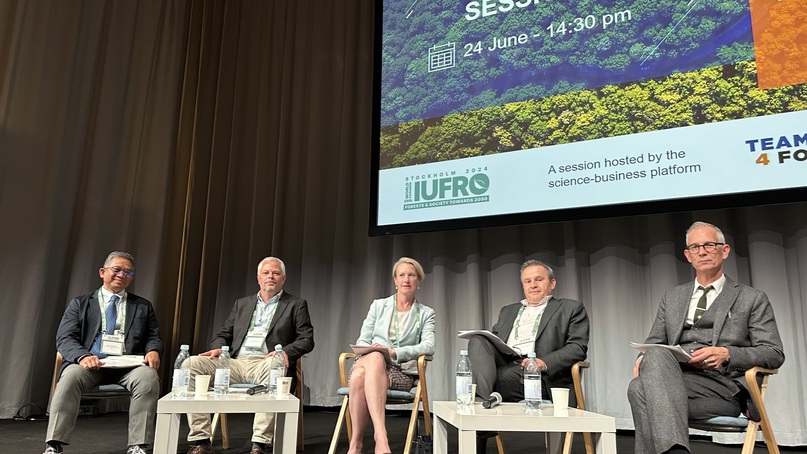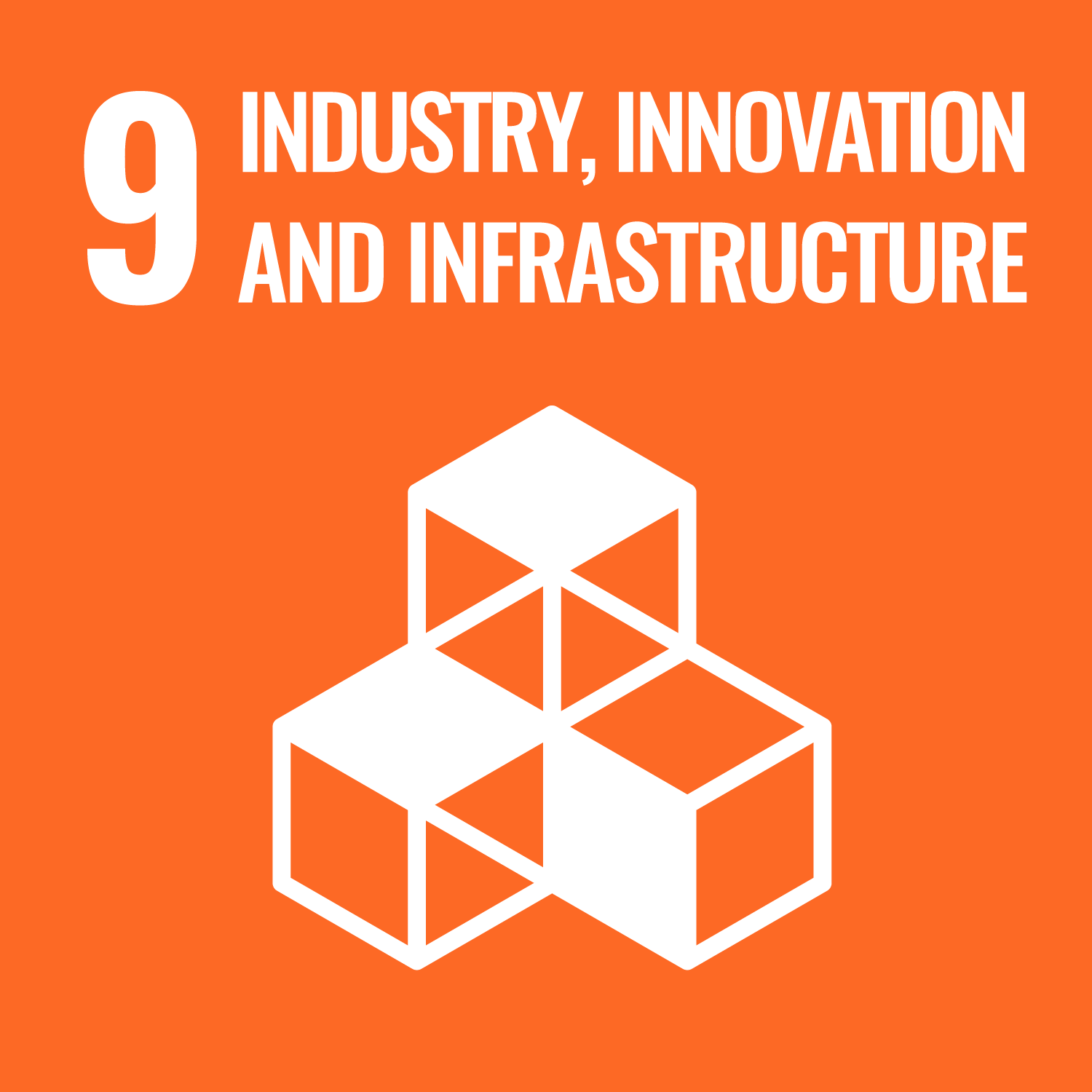Increased investment is key for stronger linkages between forest science and businesses say experts
25 June 2024

Panellist at the sub-plenary on Scaling up the Exchange Between Forest Science and Business at 2024 IUFRO World Congress. Photo: R. Carrillo/ITTO
Stockholm, Sweden, 25 June 2024: Business and sciences in forestry need to interact more closely if they are to bring innovative solutions for addressing global challenges and contributing to the achievement of the Sustainable Development Goals (SDGs). Further investments are crucial in fostering effective business-science partnerships.
This was the key message delivered by experts at the sub-plenary session titled “Scaling up the Exchange Between Forest Science and Business”, where ITTO participated on the first day of the 2024 World Congress of the International Union of Forest Research Organizations (IUFRO) held in Stockholm, Sweden, this week.
ITTO Projects Manager Tetra Yanuariadi took part in the session and addressed questions on leveraging partnerships to promote sustainable development and encouraging engagement and cooperation between the private sector and the scientific community.
Dr Yanuariadi first pointed out that sustainable forest management (SFM) in the tropics and sustainable timber trade contribute to the achievement of several SDGs as well as meeting demand for wood.
Given ITTO’s mandate to promote the expansion of trade in tropical timber from legal and sustainable sources, the Organization is perfectly placed to assist its membership in making progress toward the SDGs, he said.
Examples of that assistance include guidelines and policies on SFM in the tropics, field projects, market information, a unique statistical database on the production and trade of tropical timber, and specialized international events such as the annual Global Legal and Sustainable Timber Forum inaugurated in 2023.
A significant share of this assistance is developed and delivered through close collaboration and partnerships with other organizations with shared goals, such as through members the Collaborative Partnership on Forests. Donor countries and regional organizations are also important partners for ITTO. A relevant example was the collaboration held in 2021–2022 on the Global Forest Education Project.
Second, Dr Yanuariadi addressed the importance of building local capacity and developing adequate policy frameworks—a key aspect of ITTO’s work—in encouraging engagement and cooperation between the private sector and the scientific community.
He said wide-ranging initiatives involving organizations like ITTO and other stakeholders, from forest-dependent communities and government organizations to researchers and timber companies, show that the desire and tools to halt tropical deforestation, generate innovative solutions and put the planet on sustainable course are available.
“Robust policy and capacity on SFM are important in encouraging blended public-private investment and in facilitating cooperation between the private sector and the scientific community,” he said.
Other speakers at the session were Viveka Beckeman, Director General of the Swedish Forest Industries trade organisation; Bernard de Galembert, Director of the Forest Solutions Group at the World Business Council for Sustainable Development; Rob Kozak, Professor and Dean at the University of British Columbia, Faculty of Forestry; and Dirk Längin, Group Head of Fibre Sourcing at Mondi.
Dr. Yanuariadi's interview at IUFRO Wordl Congress:
https://youtu.be/bz3DOYWcuko?si=e4TLfqfmVs1opTfu

